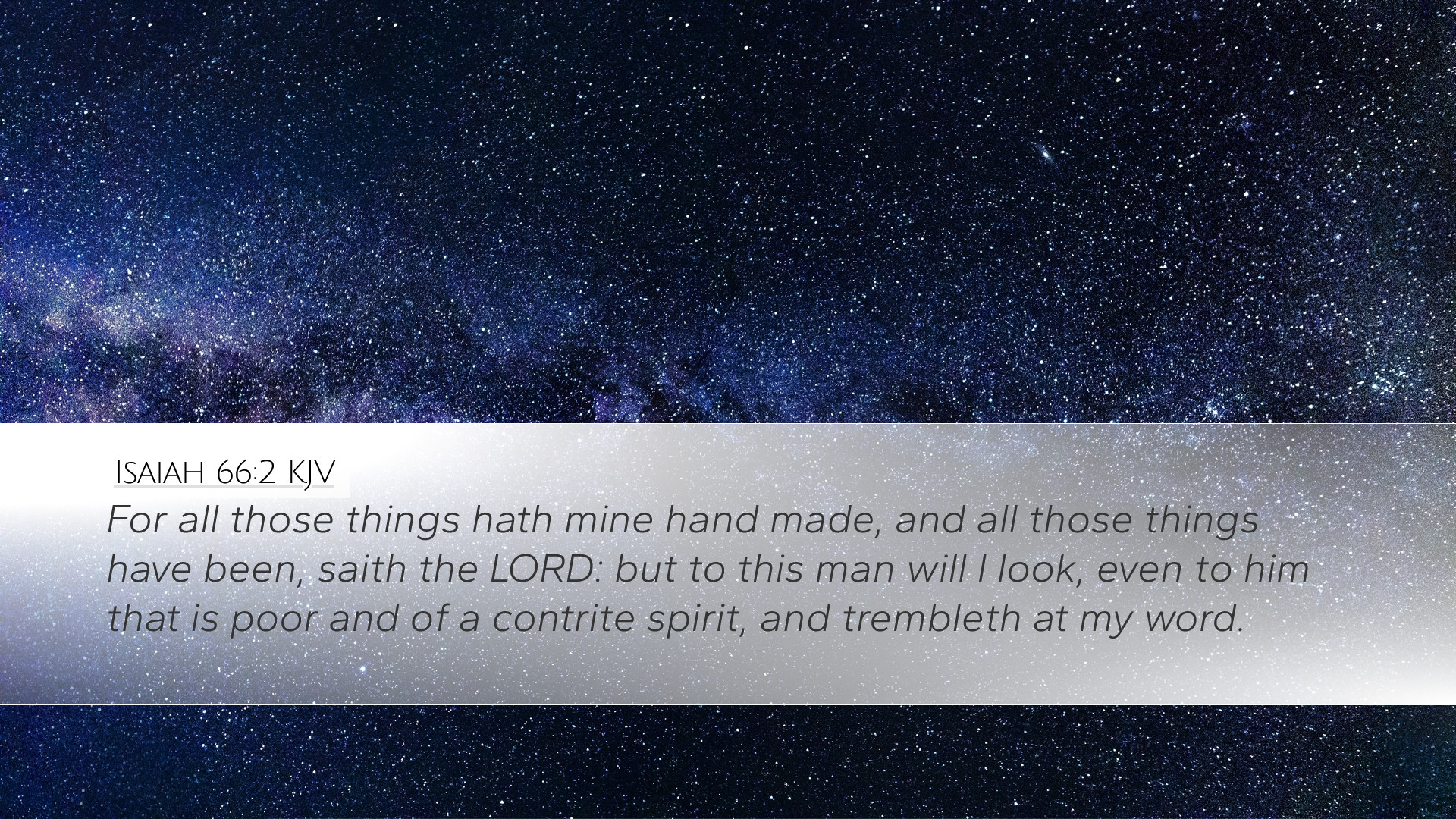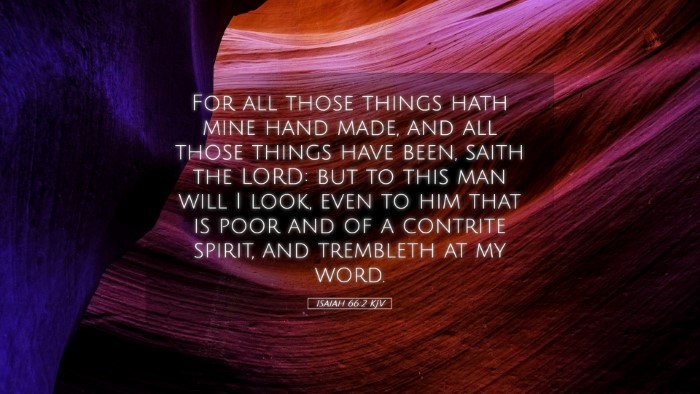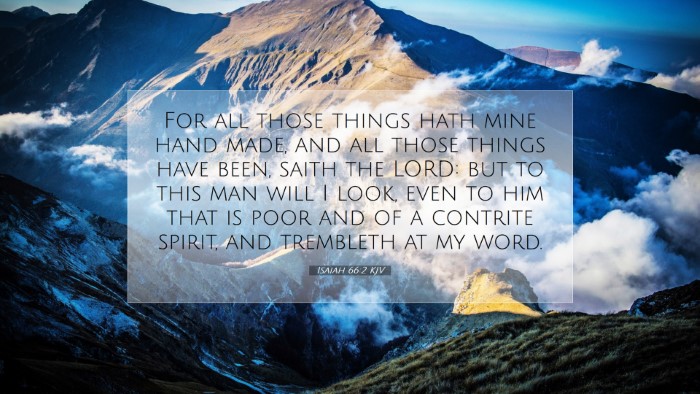Commentary on Isaiah 66:2
Isaiah 66:2 states:
"All these things my hand hath made, and all those things have been, saith the Lord: but to this man will I look, even to him that is poor and of a contrite spirit, and trembleth at my word."
Introduction
This verse from the book of Isaiah represents a profound declaration from God concerning the nature of true worship and the character of those whom He favors. In understanding this passage, it is essential to explore the insights offered by prominent public domain commentaries, including those by Matthew Henry, Albert Barnes, and Adam Clarke.
Contextual Background
Isaiah’s prophetic ministry spans a critical period in Israel’s history, addressing both judgment and hope. Chapter 66 serves as a culmination of themes prevalent throughout the book, emphasizing God’s sovereignty over creation and His desire for genuine relationship with His people.
Divine Sovereignty and Creation
Henry notes that God asserts His authority over creation, indicating that He is the Creator of all things. This acknowledgment of God’s sovereignty establishes the framework within which human worship must be viewed. The phrase "my hand hath made" reflects God’s active role as Creator:
- Inherent Power: God's creative power underscores His ability to govern and shape history.
- Ownership: Everything belongs to God; therefore, He alone has the right to define what constitutes true worship.
The Nature of True Worship
In the latter part of this verse, God distinguishes between mere outward religion and heartfelt devotion. Barnes emphasizes the attributes of the individuals God esteems:
- Poverty of Spirit: This reflects humility, recognizing one's dependence on God.
- Contrite Spirit: A heart that is broken over sin and grieves for its consequences.
- Trembling at My Word: A deep reverence and awe for God’s commandments and promises, indicating a serious commitment to His truth.
Humility Before God
The phrase "to this man will I look" captures God’s attention towards the humble, signifying that He values a disposition of heart over external rituals. Clarke points out that this divine look implies favor and acceptance:
- God’s Favor: The humble and penitent receive God’s grace and attention.
- Contrition as Worship: True worship is characterized by inner transformation rather than mere outward performance.
The Reverence for God’s Word
Trembling at God’s Word suggests a profound respect for Scripture. Matthew Henry articulates that this reverential attitude reveals the foundation of a believer’s life:
- Commitment to Obedience: A genuine fear of God prompts adherence to His commandments.
- Servitude and Submission: True worshippers submit to God’s authority, recognizing their own limitations and sinfulness.
God’s Rejection of Hypocrisy
In juxtaposition to the humble one, Henry observes that God rejects the proud and the hypocritical, emphasizing that outward expressions of faith devoid of inner sincerity are unacceptable:
- Religious Formalism: Ritual without real devotion is unpleasing to God.
- Heartfelt Faith: God desires authenticity over empty traditions.
Conclusion
Isaiah 66:2 serves as a clarion call for reflection on the nature of genuine worship. The insights from Henry, Barnes, and Clarke collectively draw attention to the characteristics that God seeks in His people: humility, contrition, and reverence for His Word. For pastors, students, theologians, and scholars, this passage challenges the very foundation upon which worship is built, urging a return to heartfelt devotion and an acknowledgment of God's sovereign authority.
Reflection Questions
- How do we cultivate a spirit of humility and contrition in our worship practices?
- In what ways can the church guard against the dangers of religious formalism?
- How can we deepen our reverence for God's Word in our daily lives?


